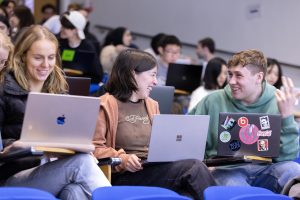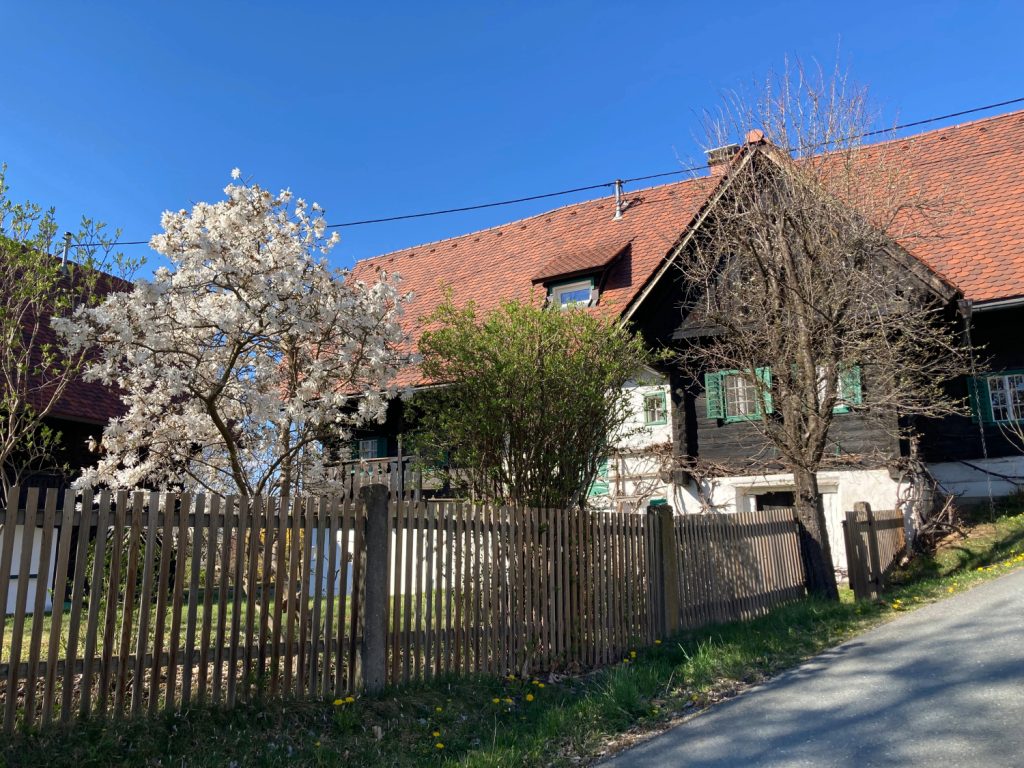“I need to be a non-judgmental listener who looks at the wider picture and acts as a spokesperson for the student, while guiding them towards realistic goals concerning the completion of their studies.”

The Postgraduate Taught (PGT) Senior Tutor plays a pivotal role in supporting postgraduate students, particularly those facing complex challenges, and in enhancing the overall student experience.
We spoke to Dr Birgit Leitinger, who has recently been appointed as PGT Senior Tutor at the National Heart and Lung Institute (NHLI), to hear about her goals and vision for this important role. Birgit is also a Reader in Matrix Receptor Signalling at the NHLI, as well as a Module Lead and Head of Assessment and Feedback for the BSc Medical Biosciences.
What are your goals in your new role as PGT Senior Tutor, and how do you envision it impacting the student experience?
As Senior Tutor, I have two main goals. The first is to support individual students with complex needs. These would be students who require additional help and support during their degree, often because they find themselves in unexpectedly difficult circumstances. They may have complex health issues, financial difficulties, or family emergencies (sometimes a combination of these) or find themselves in situations that have led to an academic disciplinary case. I can support the students by advising them on welfare or financial support, as well as liaising on their behalf with various services at Imperial (such as the disability advisory service), the MSc course staff or the casework team. Essentially, I need to be a non-judgmental listener who looks at the wider picture and acts as a spokesperson for the student, while guiding them towards realistic goals concerning the completion of their studies.

My second goal is to lead and manage the postgraduate tutoring system at NHLI. Towards this end, I am planning to set up a more centralised system for tutors and students to book meetings and which can function as a repository for various training and meeting documents, similar to the current FoM undergraduate tutoring platform on MedLearn. I plan to deliver unified tutor training for all tutors that should be implemented each autumn. This will ultimately benefit both tutors and students.
Finally, my aim is to be a source of advice and support for the personal tutors.
What advice would you offer to colleagues who are interested in teaching or contributing more to the field of education?
Teaching is more challenging but also more rewarding than you think! It is challenging, as you need to be able to break down concepts in a way that makes sense to students who are not yet familiar with the thought processes that come naturally to people who have been trained, or are working in, the particular field. It can take several attempts to ‘get it right’. It can also be challenging when it shows you your own limited understanding of the subject.
However, teaching is very rewarding as it has a direct influence on other people and it is extremely satisfying to see the progress that students can make, especially if they are trained to become independent scientists and you can ‘watch’ the students acquiring scientific skills. Also, it is great to be able to inspire the next generation of scientists to become critical and original thinkers. Finally, teaching provides excellent opportunities for educators to act as mentors for individual students.
Teaching often requires truly collaborative efforts to be effective, and this does not only apply to the people who facilitate its delivery or participate in marking. For academics who are new to teaching, it is a good opportunity to appreciate the efforts that go on ‘behind the scenes’ by administrative staff who are sometimes ‘invisible’ to us. I have personally enjoyed the team effort, working closely with colleagues who support both students and staff.
“It is great to be able to inspire the next generation of scientists to become critical and original thinkers”
What has been the most rewarding part of your teaching career so far?
I am a module lead on the BSc in Medical Biosciences (BMB) for one of the core modules (Molecular and Cellular Biology) in Year 1. We have been teaching this programme completely without lectures, using flipped classroom and active learning methods since it began in 2017/18. I started on the programme at the time of its conception, and it was very satisfying to be able to produce new teaching materials and decide on the learning content and methods of delivery. I enjoyed very much the collaboration with our instructional designer Emma Blyth, who was instrumental in helping shape the online teaching content and its delivery. Meeting Emma became one of my favourite activities during that time!
The students I teach come directly from school and every year I am pleasantly ‘surprised’ at how quickly they become able to discuss scientific concepts at a very high level and how soon they are able to analyse a fairly complex dataset. This is a clear testament to the effectiveness of the teaching methods and shows that our goal, to educate the students to be able to think like scientists, is achievable.
In fact, I know this goal is more than met for the majority of the BMB students, as they are also highly trained in lab skills and often make excellent BSc project students who are at a level comparable to (or even higher than) MRes students. I know the students do well in quite complex types of ‘authentic’ assessments, as I am also the Head of Assessment and Feedback for that programme. So, altogether, it has been enormously rewarding to be a part of the BSc in Medical Biosciences.
And finally, is there an interesting fact about you that others might not know?
I am originally from Austria, but for some reason, British people often think I am French!

Find out more about available support for staff and students.